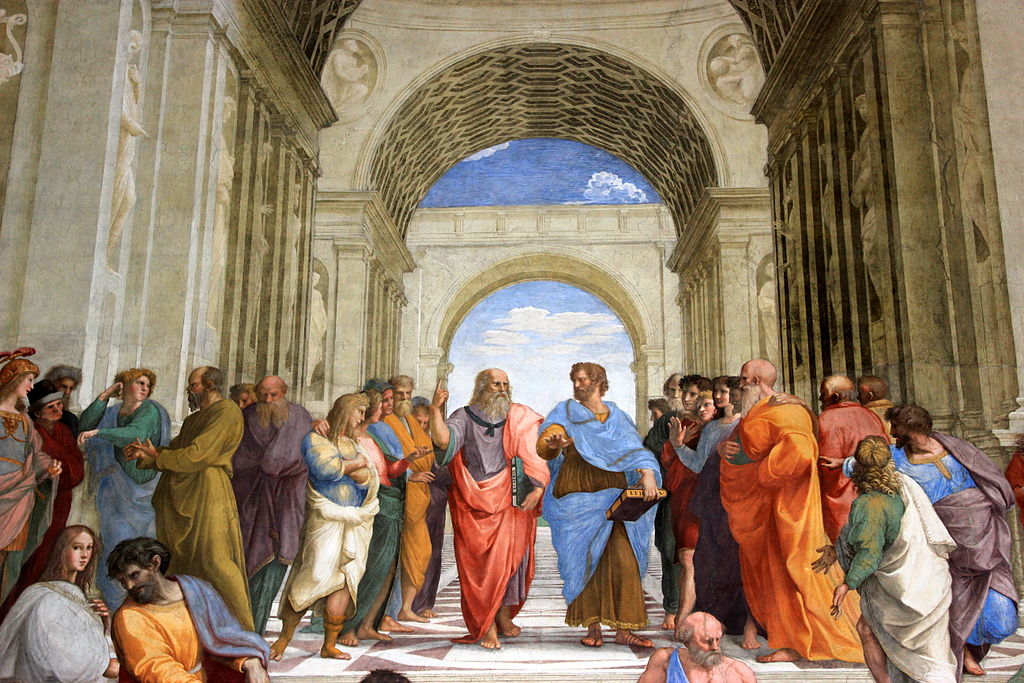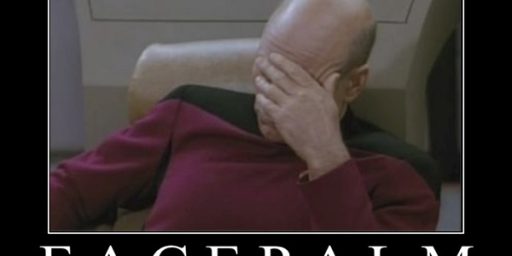Is Western Civilization Real?
A scholarly treatise argues it is not.

Two recent reviews in the British press of a new book by an Oxford historian.
The Economist (unsigned), “The history of the West is not quite what you learned in school.”
Asked what he thought of Western civilisation, Mahatma Gandhi is said to have quipped that such a thing “would be a good idea”. (The West, he suggested, was not so enlightened.) But as Josephine Quinn makes clear in her new book, Western civilisation has always been a bad idea, or at any rate a wrong-headed one. To compartmentalise history into a set of distinct and essentially self-contained civilisations is a misguided quest that has dangerously distorted our understanding of the world, Ms Quinn asserts: “It is not peoples that make history, but people, and the connections that they create with one another.”
Ms Quinn, a historian and archaeologist who teaches at Oxford, does not spend 500-odd pages trashing what generations of schoolchildren have been taught to take pride in as European achievements. Instead, she demolishes the underlying concept of what she calls “civilisational thinking”. Her argument is simple, persuasive and deserving of attention.
The idea of civilisation, Ms Quinn points out, is relatively recent. The word was first used only in the mid-18th century and did not take hold of Western imaginations until the late 19th century. In that imperialist age, historians found that Greek, Roman and Christian civilisations made nice building blocks that could be stacked into a grand-looking construct, which they labelled “Western” or “European” civilisation. To this they attributed a host of inherited “classical” virtues: vigour, rationality, justice, democracy and courage to experiment and explore. Other civilisations, by contrast, were regarded as inferior.
[…]
Ms Quinn’s brisk, scholarly romp across the arc of European history shows that, far from being rare, contact across and between cultures, often over surprisingly long distances, has been the main motor of human advancement in every age. Rather than being prickly and inward-looking, most societies have proved receptive to ideas, fashions and technologies from their neighbours.
Ancient Greece, for example, was less a place of origins than of transmission from Egyptian, Sumerian, Assyrian and Phoenician cultures, which themselves had mixed and exchanged ideas. And rather than being the wellspring of democracy, Athens was “something of a latecomer” to a form of governance that appears to have been first tried in Libya and on the islands of Samos and Chios. Persians, eternally cast as Greeks’ polar opposites, actually imposed democracy on Greek cities that they ruled, suggesting “considerable Persian faith in popular support for their own hegemony”, Ms Quinn notes.
Tristram Hunt, director of London’s Victoria & Albert Museum, Financial Times, “How the World Made the West — a scuttling of civilisational myths.”
It is the Oxford professor of ancient history Josephine Quinn’s contention that we continue to remain ideologically hidebound by such misplaced historicism. This “civilisational thinking”, as she puts it, provided the cultural rationale for western European supremacy during the 19th century, enabling colonial expansion and racial hierarchies. And in the 21st century it is still the norm, Quinn suggests, misguidedly to distinguish “the west”, a Christian culture with Greco-Roman or even earlier “Indo-European” roots, from “the east”, whether centred on Russia, China or Islam.
Tracing 4,000 years of predominantly European history, Quinn unpicks this paradigm to emphasise the west’s permeability. Her purpose is to dethrone the “privileged connection” between ancient Greeks and Romans and the modern west, and focus instead on the millennia of interaction with other cultures. So-called western values — freedom, rationality, justice and tolerance — are not only or originally western, she suggests, but “the West itself is in large part a product of long-standing links with a much larger network of societies.” As any brief study of museum antiquities in Athens, Rome or Berlin will testify, an appreciation of the reflexive relationship between cultures of the eastern and western Mediterranean, or human settlement across the Levant and north Africa, or trade flows between northern Europe and the Iberian peninsula, is not the most startling revelation. Few public accounts of the past today subscribe to mid-Victorian ideals of an unblemished classical inheritance. Nevertheless, Quinn pursues this claim with an impressive display of rigorous scholarship lightly worn, successfully covering a huge amount of material.
[…]
At the end of this supremely professional history, I was left with the question of who is it for? Approaching the 50th anniversary of Edward Said’s seminal Orientalism, our undergraduates certainly don’t lack for cultural relativism or calls for decolonisation. In the UK, Generation Z already has precious little appetite for defending “western civilisation”, with a recent YouGov poll showing 38 per cent of under-40s say they would refuse to serve in the armed forces in the event of a new world war, and 30 per cent say they would not serve even if Britain was facing imminent invasion. If, on the other hand, this weekend I was sheltering in a bombed-out apartment block in Kyiv, fearing another wave of barbaric Russian bombardment, I think I might be hoping that “the west” did retain some sense of a historic identity and purpose in the world.
I have yet to read the book, so my comments here are simply a reaction to the above-cited reviews, not a 592-page scholarly tome with over a hundred pages of footnotes. I have no doubt that it makes important contributions to the literature. But the topline findings described in the reviews are not the least bit surprising from the standpoint of social science.
Of course the notion of “Western civilization” and, indeed, the notion of distinct civilizations aren’t real. They’re social constructs. As Benedict Anderson famously said of nations and nationalism in a 1983 classic of the same name, they are “Imagined Communities.” And even my schoolboy understanding of European history was that it was constantly engaged in exchanges with the outside world, readily borrowing ideas from them. Indeed, I decided early on that this was precisely what made the West the West: a cosmopolitan willingness to learn from new ideas in a constant quest for progress.
Still, while the notion of “the West” as something distinctive from “the Rest” can be and has been destructive, that doesn’t render it completely without value. While Samuel Huntington’s Clash of Civilizations was rightly criticized for its cartoonishness, its core idea that the experiences of Western societies (including especially the Enlightenment and Reformation) made it distinct in important ways from that of Russia. And I don’t think many in East Asia, the Arab Middle East, or Sub-Saharan Africa would disagree that there are rather significant cultural differences between us.






In the past I’ve posted at length on how nonsensical the notion that our culture is derived from that of classical antiquity (Greece and Rome) is. It’s hard to argue with people about foundation myths.
Further, I question the concept of “the West”. I think that’s at least in part a P/R campaign by the Brits to draw us into wars defending them.
The United States is and always has been multi-language, multi-ethnic, multi-racial, and multi-cultural in a way that Britain, France, and Germany have only become within the last couple of decades.
Lumpers and splitters
Where does the land end and the sea begin?
@Dave Schuler:
Ha. There’s certainly something to that. After all, “the West” was often at war within itself for most of its existence. That we’re a community of likeminded nations with shared values is largely an artifact of the Cold War and the relative peace in its aftermath.
At the same time, it’s true that the underpinnings of what we call the liberal international order, such as it is, was promulgated by a handful of Western powers. You’re certainly right, though, that trying to trace that to quasi-democracy in ancient Greece is a foundational myth rather than a causal chain.
My American education taught that the Redcoats were a bunch of dummies who marched in straight lines wearing bright red coats and carrying muskets while our side wore camo (buckskin), used the terrain for cover, and carried rifled weapons that were much more accurate. Also, they got drunk Christmas eve allowing Washington to cross the Delaware. Later in college I took a Western Civ course where I was confused by where my sympathies should lie. Who is the good guy, Charlemagne or the Frisians? Am I supposed to cheer the Teutonic knights as they conquer Poland and Lithuania? If the Teutonic knights are not the good guys, then what about Cortez in Mexico?
I do have the sense that much of the rallying cry for Western civilization is a legitimatization for 19th century colonialism. We’re not conquering you; we’re bringing Western civilization.
Without aby doubt, “the west” and “western civilization” are terms/categories of power, rather than being coherent analytical categories.
Just off the top of my head I would note that Christianity and Judaism are both Middle Eastern religions in origin.
Our math is based on Arabic numerals.
We wouldn’t have a lot of the Western “canon” (i.e., the Greeks in particular) were it not for Arabs preserving it (IIRC).
@Steven L. Taylor:
I would disagree.
“Western civilization” (although I’m not necessarily a fan of the loaded term “civilization” in this context) is something that is rooted in a) a religious culture in which orthodoxy rather than orthopraxis is the dominant concern; b) in which state and religion are separate as a matter of principle (even if often imperfectly so).
You don’t find that combination anywhere else. And I would also argue that it is a combination that has had a real and significant impact.
@drj:
You mean like in England? 😉
(And yes, I realize it is more complicated than that, but I would also note that the divisions are not all that near).
Where does Japan fit?
@Steven L. Taylor: Also preserved by the Eastern Roman (Byzantine) Empire…which was not considered part of the West after the fall of Rome, or Charlemagne, or the Great Schism (at the latest).
@Steven L. Taylor:
Yes.
Obviously, I am aware of how the Anglican Church is organized. But I would also like to note that the English ultimately got rid of their ruling dynasty (the Stuarts) because James II’s Catholicism was perceived as a risk to ecclesiastical independence.
In the Western “system,” there are two separate loci of authority, neither one of which managed to become wholly dominant.
Combine these two loci of authority with a religious culture in which orthodoxy (i.e., truth) is generally more important than orthopraxis (the right rituals/behavior), and you get a rather different dynamic than anywhere else in the world.
It should be noted that one difference between “truth” and “right behavior” (in a religious context) is that the latter need never change, while the former can be challenged by internal contradictions, observation, and logic.
Basically, all religions work the same, i.e., in a manner that can be expressed by the Roman expression Do ut des, meaning: “I give in order that you give” (with the “I” being the human supplicant and the “you” the relevant deity).
In some religions (e.g., Judaism, Islam) the “giving” is no longer a literal sacrifice, but mostly ritualized behavior. In Islam, think of the Five Pillars.
However, Christianity (due to its spectacular initial failure and rather unexpected survival) is the one big exception.
Christianity started out as a Jewish sect promising (as Judaism tends to do) divine assistance in the here and now. Do ut des.
Then, Jesus got himself killed and his followers started claiming that his kingdom would not be of this world, but of the next. And faith rather than ritual became key. (Not overnight, obviously. And even in today’s Christianity, ritual is not wholly unimportant, just less important.)
A couple of centuries later, Christianity and it concomitant stress on orthodoxy had become extremely popular. But then, the Western Roman Empire collapsed, while the Papacy remained, giving you the two separate loci of authority.
Each of which could claim the right to adjudicate moral truth. (At the very least in its own domain. But how to reliably separate the two if we must render unto Caesar the things that are Caesar’s and unto God the things that are God’s?)
In Japan, religious orthodoxy was never stressed. Which is why Buddhism and Shintoism have no problem co-existing. Even in Buddhism (which has a “theology” of sorts), salvation (“nirvana,” properly speaking) is achieved through action rather than faith.
And while Buddhism could and did challenge secular authority on occasion, I don’t think Buddhism ever had the moral authority to be able to credibly claim, let alone assert dominance over Japanese society as a whole.
So neither orthodoxy, nor two competing loci of (moral) authority.
EDIT: This also means that ancient Greece and Rome should not be understood as part of the West, but rather as quite distinct predecessors of the West.
Is this not a bit of, ‘Hey man, didja know pasta isn’t Italian, it’s Chinese?‘
That X is a synthesis of A, B and C, does not mean X is not X. (That’s math!)
Western Civilization is just a fancy way of saying White People.
It flattens and ignores the differences between Vikings, Germans and Greeks, while increasing the differences between White People are the darker tones outside of Europe. It creates a unity and heritage where it never really existed.
Meanwhile the dominant religion comes from brown folks in the Middle East — one that has comparatively floundered there. We can find countless other influences, but when we are embracing a discarded religion of another broad civilization, it undercuts the notion of civilization as a unique entity with clear boundaries.
This would be a response to chattel slavery based on race, which required a narrative of White Supremacy to justify it.
And even Whiteness has been very much a fluid concept, despite being precisely measured with calipers. Irish weren’t considered White for the longest time. And Italians and Greeks, who were ostensibly at the heart of Western Civilization with their columns and what not.
@James Joyner:
I’m reminded that many of my Korean students and acquaintances used to say that Korean history is 4000+ years of invasions by neighbors. My point being that “being at war within itself for most of its existence” is probably not unique to “Western” “civilization.”
As to the book itself. An interesting thesis that warrants consideration and will probably become part of future Western Civ. classes in a generation or so provided that Civs of any sort are still required for “a well-rounded education.”
@Gustopher:
Indeed! I remember someone (but not who it was anymore) suggesting that Western Civ. represents an attempt to explain, to some degree, “where we came from.” That the explanation would be oversimplified does not strike me as particularly curious.
@drj:
Really excellent comment.
@drj:
I think a division of Christian Colonialist empires might be more useful than “western civilization” that includes Greece, Rome, Gaul, Norse cultures, whatever was happening in the future UK with people painting their faces blue, etc.
And it’s only a “might be” because I just don’t know enough about the Chinese and Japanese empires, and whatever might have been going on in Africa before the Christian Colonizers. Christian Colonizers definitely had their moment of dominance, but I don’t know enough to say that it was because of the Christian part, or whether than was window dressing.
But the term “Western Civilization” is like “Intelligent Design” — it’s there to hide what people really mean.
@Gustopher:
You are really applying the wrong categories here.
Ethiopia, for much of its history, was definitely a Christian colonialist empire. But it’s not and never has been a part of the West.
Switzerland never had colonies, but no one would argue that it’s not part of the West.
What sets the West apart from the rest of the world is not Christianity, but Latin Christianity specifically.
This is because the “barbarians” succeeding the Romans in the West came to rule over a preexisting, largely Christian population. This meant that ecclesiastical administrative structures were in place long before the political administrative structures. The former were quite a bit more more advanced, too. That gave the Church a position that it did not manage to acquire anywhere else.
For instance, you don’t see a similar dynamic in the eastern half of the Roman Empire, because that half would last another thousand years (albeit much diminished toward the end).
And colonialism is far from a Western thing. I already mentioned Ethiopia’s expansion in the Horn of Africa. Much earlier, there was the Bantu expansion throughout much of Sub-Saharan Africa. Settlers from Borneo colonized Madagascar, and their descendants would (generally) come to dominate later (and darker skinned) immigrants from Eastern Africa. The Vietnamese have largely replaced the indigenous Cham (violently, by the way), and China is now actively settling Han Chinese in Tibet and Xinjiang, also replacing the original population.
It’s just that Europeans, starting around 1500 CE, were far, far more effective at colonizing faraway places than other peoples had ever managed to be. It’s not so much that their desire was larger or more intrinsic, but rather that their ability was so much larger.
And I think that there is an argument to be made that this ability grew (rather contingently, to be fair) out of the unexpected survival of an obscure Jewish sect and the collapse of the Roman Empire (but not the Latin Church) in the West.
The reason that Ancient Greece and Rome should perhaps be understood as parts of Western civilization is not so much that they were “Western” themselves in any meaningful sense of the word, but rather because they provided most of the flotsam on which modern-day Western culture, traditions, and institutions came to be built.